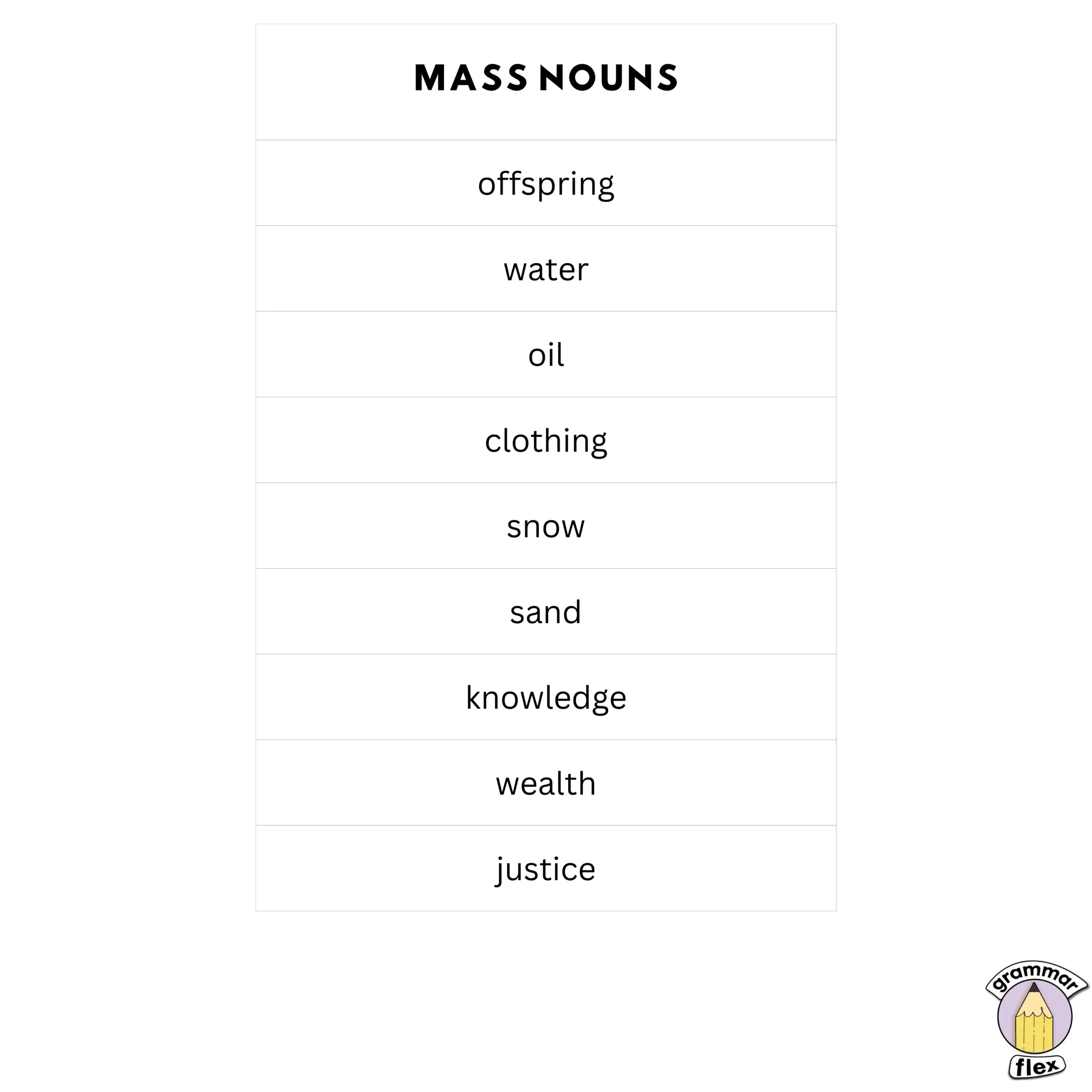What are mass nouns in English?
Have you ever tried to count the individual grains of rice in a bag? Bet you haven’t … or you’d probably still be counting them all. What about the grains of sand on a beach, or water, for that matter?
You’re extremely knowledgeable!
You have a lot of knowledge.
If the thought of counting rice makes your head want to implode (as it should), see how English at least tries to make sense in this case by assuming their plentifulness linguistically.
Rice, sand, water, oil, knowledge and justice are what we call mass nouns in English, also known as uncountable nouns or non-count nouns.
Uncountable nouns and mass nouns are literally what they’re called: they are things in the world, and even ideas and concepts, that we cannot physically or literally count/quantify.
Mass nouns only use singular noun forms, for the most part, and have no plural noun form (despite referring to things that are abundant and seem plural, at least intuitively).

What are plural and singular nouns?
Some things are easy to count: pens, books, tables and dogs are all easily quantifiable things that we can assign a number to specify the quantity or amount.
Most plurals attach an -s or –es at the end to switch from singular to plural.Some nouns use other endings to become plural, like goose plural is geese, or man plural is men.
These are considered irregular plural nouns forms in English (since they don’t use the standard -s/-es to show plural). Anything that has a singular and plural noun form are things that we can count. This is what differentiates mass nouns from other types of countable nouns (such as a pen or dog.)
Mass nouns, associate them with things you can’t count individually (like rice or water); collective nouns name groups (like team or flock).
📚 Master Mass Nouns & All Noun Types with Our Complete Workbook!
Want to practice mass nouns, countable vs uncountable, and all noun fundamentals? Our comprehensive Nouns Workbook covers everything with exercises and answer keys!
Get the Workbook - $6.99✨ Instant PDF Download • 21 Pages • Answer Keys Included
Collective nouns vs. mass nouns
What’s the difference between a collective noun and a mass noun? This sounds tricky, but fear not—the distinction isn’t all that complicated. Collective nouns, like the name suggests, mention a collective, group or number of persons as one unit or whole. See these examples of collective nouns:
| Collective noun | Mass noun |
|---|---|
| An army is made up of a collection of soldiers. | We need to buy some rice for dinner. |
| A jury is a group of jurors. | She poured a glass of milk for her breakfast. |
| A fleet is a collection of ships or vessels. | There is too much traffic on the roads during rush hour. |
Mass nouns are therefore distinct from collective nouns, mass nouns do not refer to a group or collection of persons necessarily, but can refer to abstract concepts, substances or masses of things (think elements like fire, water or smoke.)
Mass nouns vs plural-only nouns
Just like mass nouns only have a singular noun form, some nouns are plural–only. Nouns that are plural-only are made up of parts or pieces.
Think of common objects like glasses, scissors, pliers and jeans. Each of these objects and nouns are made up of more than one part of something, and so English reflects this by having them stay as a plural noun form (for the most part).
Worksheet: Mass nouns (noncount nouns)
Mass nouns, or noncount nouns are:
Select the sentence that correctly uses “knowledge”.
Mass nouns typically:
“Honey” is a:
Which is an example of a collective noun?
“Knowledge power.”
We need some .
‘Research’ is what type of noun:
Mass nouns mention .
A is a collection of jurors and is a type of collective noun.
FAQs
What is a mass noun?
+
Do mass nouns have plural forms?
+
Can I use ‘a’ or ‘an’ with a mass noun?
+
What verb form do mass nouns take?
+
How do mass nouns differ from collective nouns?
+
Sources
-
English Grammar and Composition, P.C. Wren.
Advertisement








.webp&w=3840&q=75&dpl=dpl_13tcGbrn5BXPQFsQmuQWqib9Y3DN)